Interview: Joby Earle INDECENT-ly Lighting Up & Rejuvenating The World
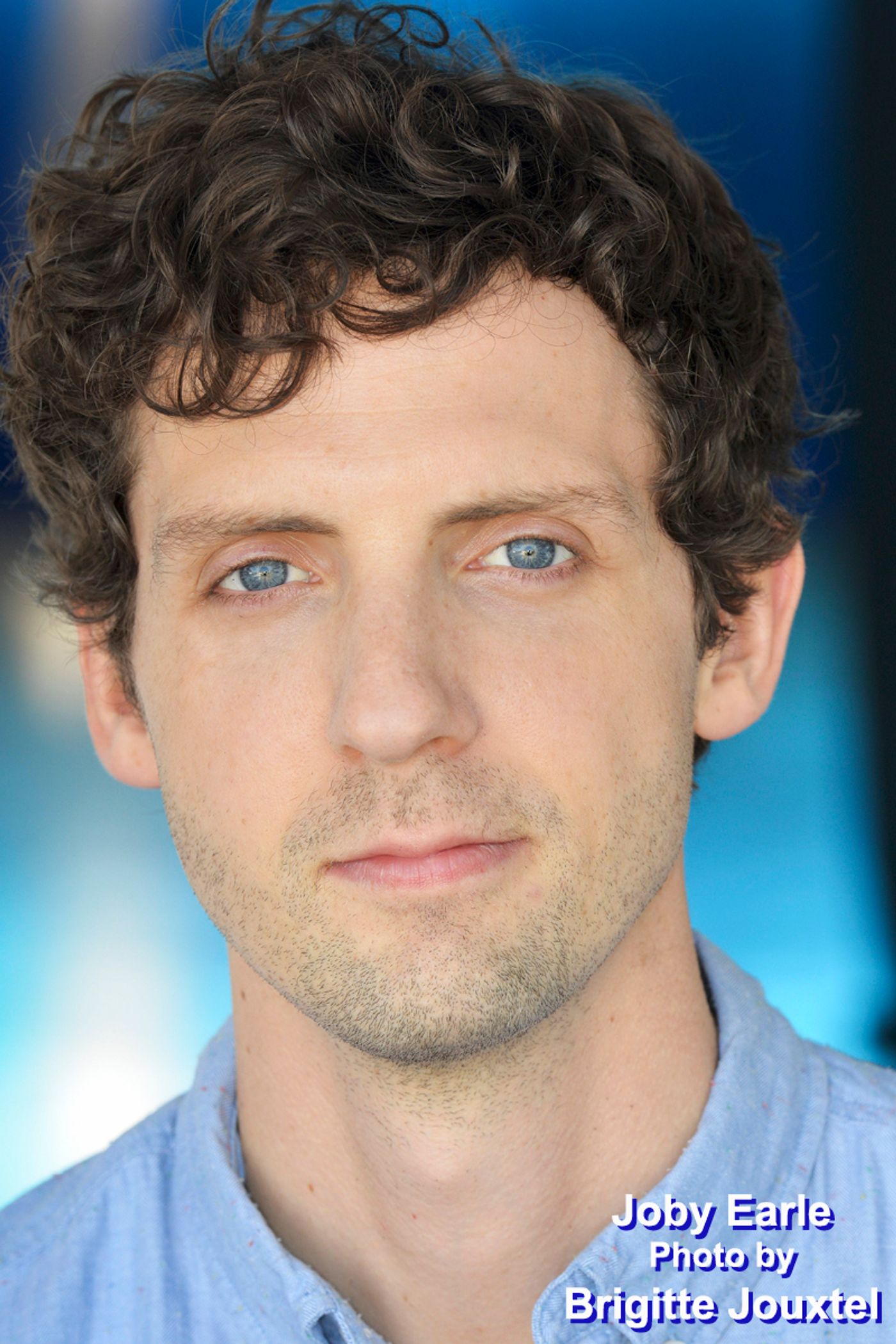
Paula Vogel's INDECENT has already begun its previews at the Ahmanson Theatre. Vogel and director Rebecca Taichman continue their collaboration, from the workshops and the Broadway run (for which Rebecca won her Tony Award directing INDECENT), to this co-production between the Center Theatre Group and the Huntington Theatre Company. At the heart of INDECENT, the real life controversy surrounding the production of playwright Sholem Asch's 1923 GOD OF VENGEANCE.
I had the opportunity to delve into the inner creative workings of the man portraying Sholem Asch - Joby Earle.
Thank you for taking the time for this interview, Joby!
The Ahmanson Theatre will be the second production of INDECENT you've played in, yes?
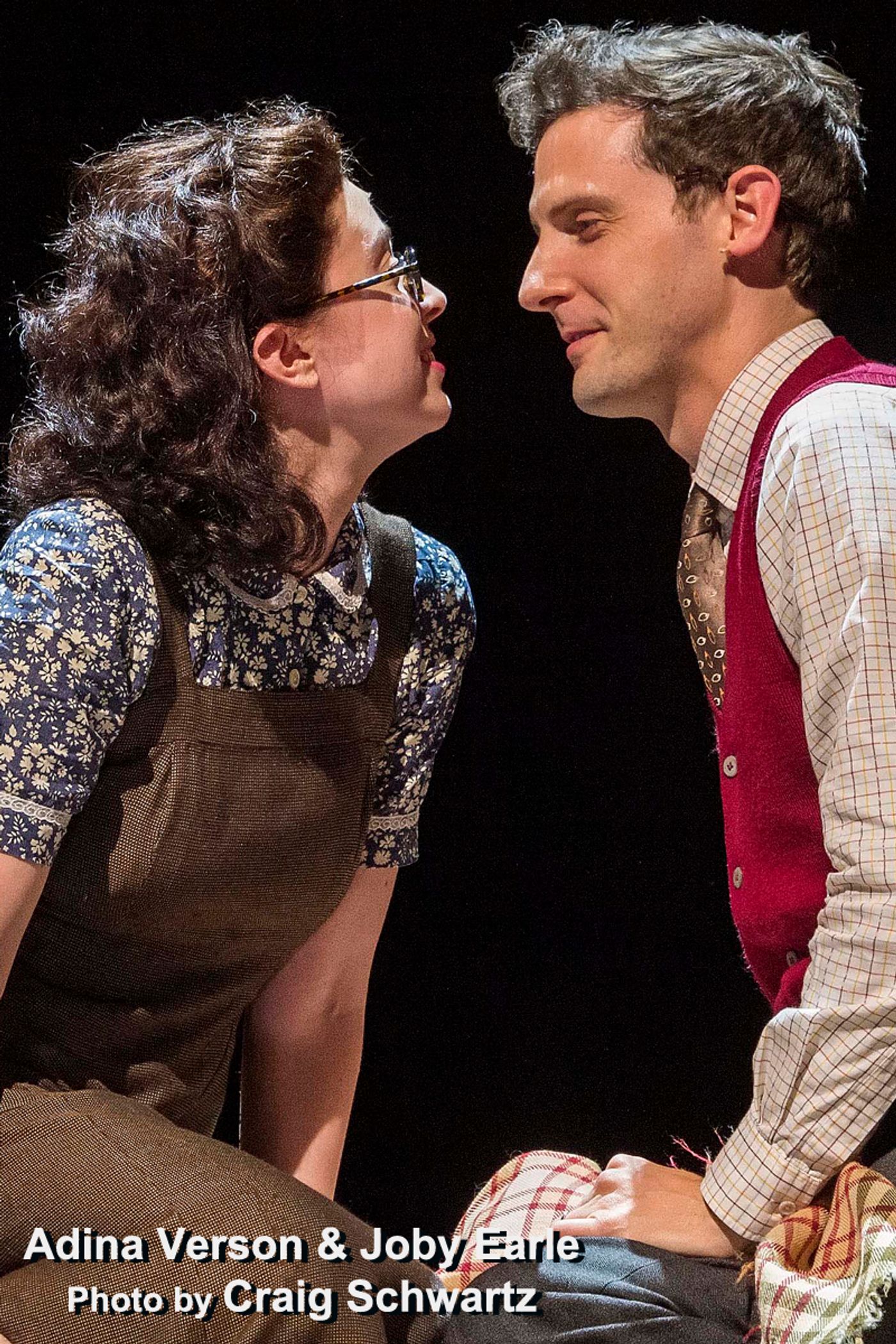 Yes. I joined the cast in April, for the runs at the Huntington and CTG.
Yes. I joined the cast in April, for the runs at the Huntington and CTG.
How was your experience with your Huntington Theatre run you just finished?
Great. It's such a wonderful old theater, which really leant itself to the spirit of the show. When the audience comes in to find their seats, we are all sitting on stage waiting for the show to start. The conceit is that we are the spirits of a troupe of actors who live in the theater, waiting for the audience to come, so we can tell the story. To be able to do that in a place with so much history really sparked our imaginations as performers.
What initially got you involved with these productions of INDECENT? Was working before with director Rebecca Taichman in Playwright Horizon's FAMILIAR a contributing factor?
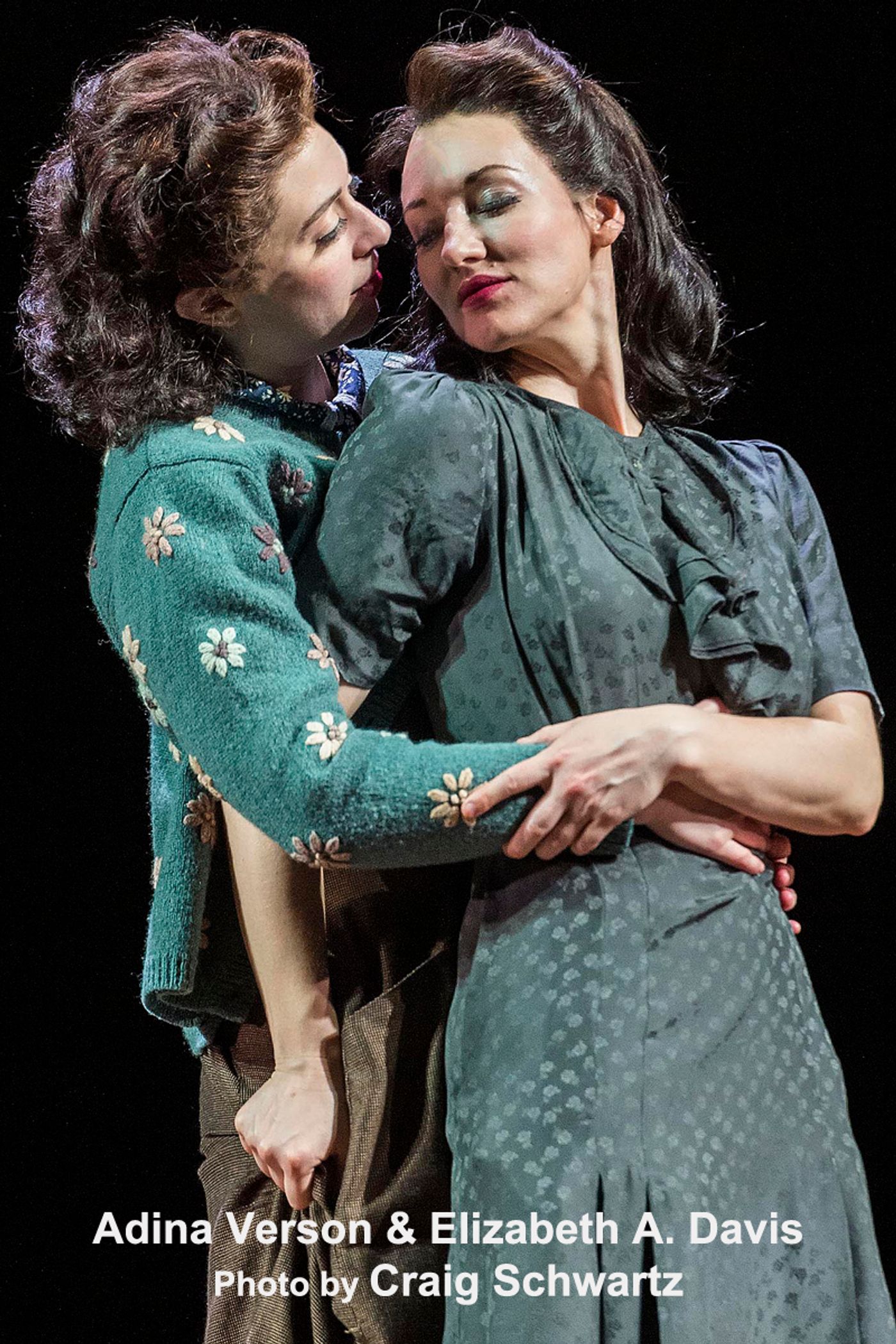 Well, I got the audition through my agent, so I prepped and went in like I would for any other job. But it's always such a relief when you have a relationship with the people in the room. I went through the audition scenes, and then Rebecca threw out a couple of ideas to try. I think having worked together before helped us communicate more freely. She is so awesome. She has such an eye for detail when it comes to human interaction. It was thrilling to be in a room with her.
Well, I got the audition through my agent, so I prepped and went in like I would for any other job. But it's always such a relief when you have a relationship with the people in the room. I went through the audition scenes, and then Rebecca threw out a couple of ideas to try. I think having worked together before helped us communicate more freely. She is so awesome. She has such an eye for detail when it comes to human interaction. It was thrilling to be in a room with her.
Had you seen the Broadway production, or its earlier La Jolla Playhouse production?
I saw it in Broadway. I got to see the invited dress, sat in the second row and wept.
How would you describe your character of Sholem Asch?
Oh, gosh. Well, he wrote a play in 1906 that celebrated two women in love. I mean, right there, Wow! As a young man, he believed in telling stories about the downtrodden, oppressed, and forgotten. He believed that if you could do that 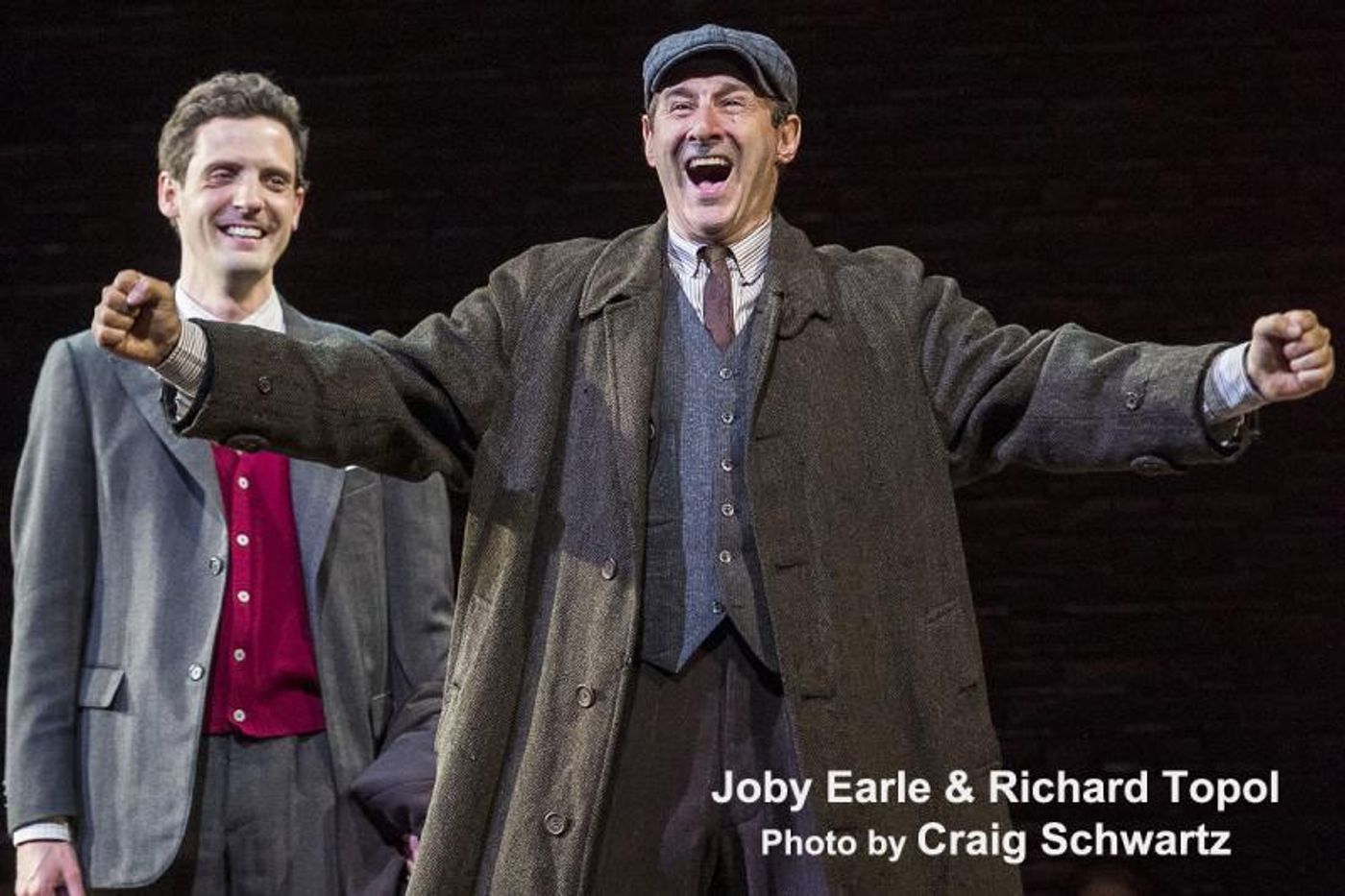 successfully, it would help everyone see that no matter how different we may appear, we are all in fact 'one people, with one common root.' Unfortunately, he was way ahead of his time, especially in America. He witnessed some things when he got older that scarred him deeply. They threatened, and one could argue, succeeded in all but destroying his sense of idealism. It's a hard journey to go on every night, but luckily I think the play argues that we must not and cannot lose hope, even in the face of horrific circumstances.
successfully, it would help everyone see that no matter how different we may appear, we are all in fact 'one people, with one common root.' Unfortunately, he was way ahead of his time, especially in America. He witnessed some things when he got older that scarred him deeply. They threatened, and one could argue, succeeded in all but destroying his sense of idealism. It's a hard journey to go on every night, but luckily I think the play argues that we must not and cannot lose hope, even in the face of horrific circumstances.
Besides, Rebecca, have you worked with any of the INDECENT cast or creatives before?
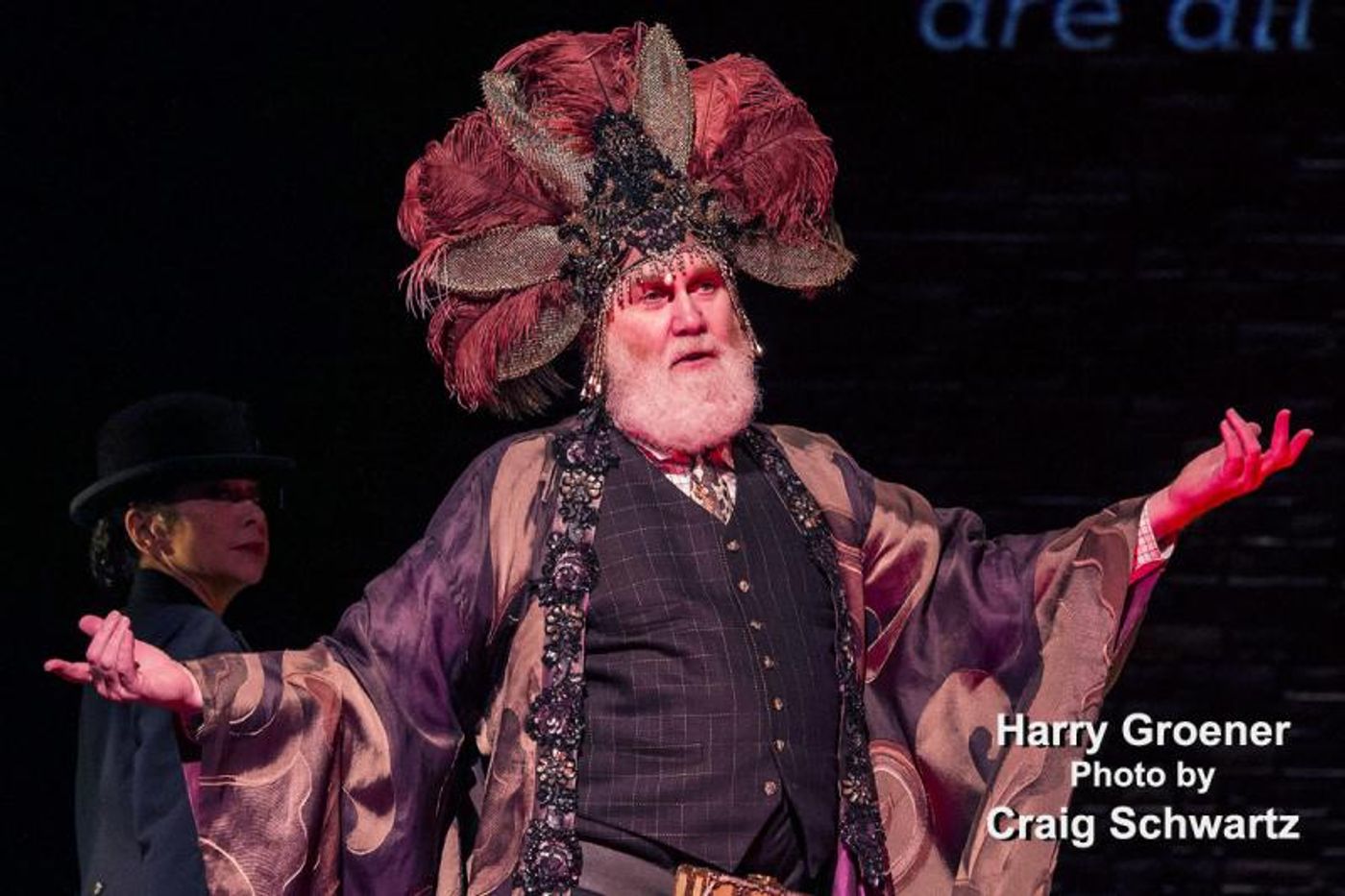 Yes! Max Moore (the original Asch), Adina Verson and I went to Yale together. Paula Vogel was the head of playwriting at Yale when I was there and was a mentor to my wife, Charise Castro Smith. Speaking of my wife, she babysat Rich Topol's daughter for years right out of undergrad. I did a production of THE TEMPEST in which Tom Nelis, the original Schildkraut, played Prospero. Dawn Didawick played Gonzalo in the production, and she is married to Harry Groener, who took over Tom's part!
Yes! Max Moore (the original Asch), Adina Verson and I went to Yale together. Paula Vogel was the head of playwriting at Yale when I was there and was a mentor to my wife, Charise Castro Smith. Speaking of my wife, she babysat Rich Topol's daughter for years right out of undergrad. I did a production of THE TEMPEST in which Tom Nelis, the original Schildkraut, played Prospero. Dawn Didawick played Gonzalo in the production, and she is married to Harry Groener, who took over Tom's part!
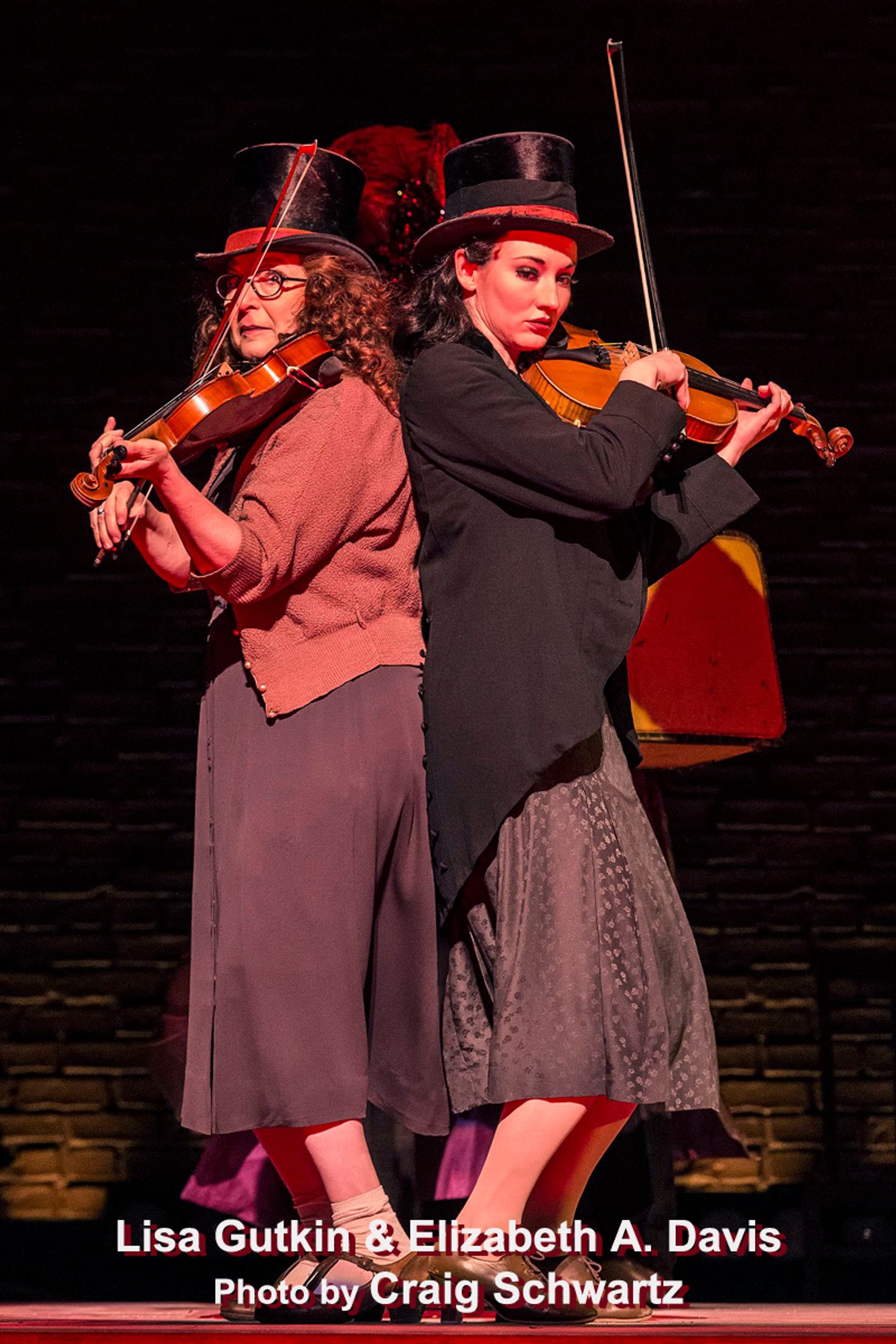 How cool was it to have the dean of the Yale School of Drama James Bundy, officiate your wedding to Charise, also a Yale graduate?
How cool was it to have the dean of the Yale School of Drama James Bundy, officiate your wedding to Charise, also a Yale graduate?
Super cool! Charise and I met at school, so we credit him for doing the match-making. He is a wonderful person who has mentored countless theater-makers into the people they are today. We felt so lucky that he agreed, and he was incredible at it.
What has been the most rewarding feeling you've felt portraying Sholem Asch?
I think it's the opportunity to play an artist who was so very, very brave. He grew up in a community where he and the people around him lived in constant fear of persecution, oppression, violence. He was warned by his mentors, rightly so, that if he chose to write about the things he wrote about, two Jewish women, one a prostitute, falling in love, that he would be 'torn limb from limb.' He did it anyway. In the beginning of the play,  Sholem has a certainty that his work, and work like his, can change the world for the better. The older I get, the less I feel this. It's so easy to let that feeling go and be replaced by realism at best, cynicism at worst. However, this play helps me remember what that feels like, and that it is our job as artists to keep the feeling alive and healthy, no matter how hopeless or bleak things may seem. The world needs us to tell its myriad stories.
Sholem has a certainty that his work, and work like his, can change the world for the better. The older I get, the less I feel this. It's so easy to let that feeling go and be replaced by realism at best, cynicism at worst. However, this play helps me remember what that feels like, and that it is our job as artists to keep the feeling alive and healthy, no matter how hopeless or bleak things may seem. The world needs us to tell its myriad stories.
In an alternate universe, under what circumstances would you find your WARHORSE characters of Joey, Topthorn, Goose, Coco and John Greig interacting with Sholem Asch? A townhall rally? Spectators at a race? In line at a grocery store?
 So, Joey, Topthorn, Coco were horses and Goose was, well, a goose. I was one of the puppeteers in that show. They lived in the English countryside. I like to think Sholem loved animals, although I cannot confirm. He did travel the world, though, and late in life he fled the United States to escape McCarthyism. He and his wife ended up in London. After so much hard work, I would like to think that maybe he was taking a walk one day through English farmland, met John Greig on vast pasture, filled with the smell of grass in the meadows, and John took him to his farm and spent the afternoon tending to Joey, Topthorn and Goose. And I hope it was peaceful.
So, Joey, Topthorn, Coco were horses and Goose was, well, a goose. I was one of the puppeteers in that show. They lived in the English countryside. I like to think Sholem loved animals, although I cannot confirm. He did travel the world, though, and late in life he fled the United States to escape McCarthyism. He and his wife ended up in London. After so much hard work, I would like to think that maybe he was taking a walk one day through English farmland, met John Greig on vast pasture, filled with the smell of grass in the meadows, and John took him to his farm and spent the afternoon tending to Joey, Topthorn and Goose. And I hope it was peaceful.
What message or feeling would you love the Ahmanson audiences to leave with after your curtain call?
This play does not shy away from the horror our world is capable of. However, what Paula and Rebecca have created so acrobatically is to balance that with the heart,  hope, and light this world is capable of, as well. And that so much of that light takes place in theaters! I also hope that people take time during the play to remember what it's like to be an immigrant, what it's like to be queer, what it's like to live under persecution and fear, and what it's like, under those circumstances, to want to tell stories. Our world is filled with countless reasons to despair. I hope people leave rejuvenated, refreshed, ready to get back to work.
hope, and light this world is capable of, as well. And that so much of that light takes place in theaters! I also hope that people take time during the play to remember what it's like to be an immigrant, what it's like to be queer, what it's like to live under persecution and fear, and what it's like, under those circumstances, to want to tell stories. Our world is filled with countless reasons to despair. I hope people leave rejuvenated, refreshed, ready to get back to work.
Thank you again, Joby! I look forward to viewing all the controversy of Sholem Asch and company.
For ticket availability and show schedule through July 7, 2019; log onto www.centertheatregroup.org
Videos

